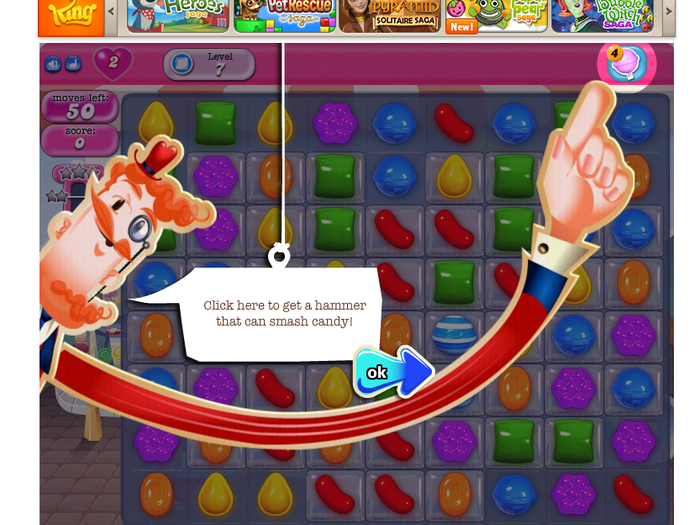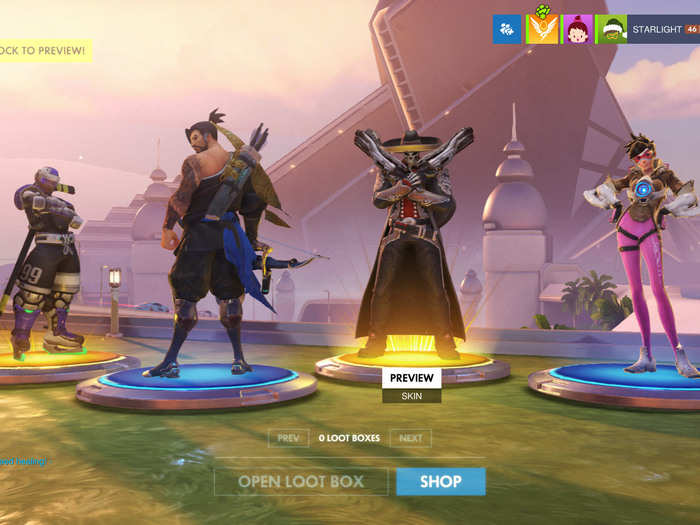- Home
- slideshows
- miscellaneous
- A US Senator is pushing a bill to stop 'Fortnite' and other games from selling 'loot boxes' to kids -Here's why loot boxes are causing so much panic
A US Senator is pushing a bill to stop 'Fortnite' and other games from selling 'loot boxes' to kids -Here's why loot boxes are causing so much panic
So what exactly is a loot box?

Sen. Hawley said that loot boxes systems are addicting for children, and game developers should face legal consequences for their actions.

"Video game companies are using "pay-to-win" and "loot box" systems to addict children to their games and spend their parents money," Sen. Hawley wrote on Twitter. "The industry needs to be upfront about their role in America's growing addiction economy & stop practices that exploit kids."
In statements given to Kotaku and the Washington Post, Hawley specifically identified "Candy Crush," a popular mobile game that sells items to make the game easier. While the base game is free, the micro-transactions allow players to spend as much as $150 on a single purchase.
Loot boxes are expected to generate $50 billion in revenue for app makers by 2022.

Juniper Research reports that loot boxes and related gambling could generate as much as $50 billion in spending by 2022. Critics of the loot box business model compare micro-transactions to gambling, because the odds of obtaining specific items are often unknown to the buyer, and the desire to find the rarest items can lead some players to continue spending money on a game with little return on investment. As more video games adopt loot boxes and micro-transactions as a standard, lawmakers around the world have expressed concerns that children are being exposed to an entry-level form of gambling.
Especially rare loot box items often come with long odds. Legendary items in "Overwatch" show up in just 7.5% of loot boxes– there are more than 100 legendary items to collect with no way to control which ones you get first. Collecting them all means buying more than 1,200 loot boxes for $2 each, or playing for hundreds of hours to unlock them over time. While the game costs $40 to play, players have speculated that you'd need to spend between $1,000 and $3,000 to unlock every item.
The Federal Trade Commission is already planning a workshop to discuss loot boxes and micro-transactions.

Prior to Hawley's bill, Sen. Maggie Hassan of New Hampshire asked the Federal Trade Commission to investigate loot box practices to ensure that children are protected and that parents are informed about potential negatives. FTC Chairman Joseph Simons responded by planning a public workshop with consumer advocacy groups, members of the video game industry, and parent organizations. Titled Inside the Game, the workshop will be held on August 7th at the FTC Constitution Center in Washington D.C. The public can leave comments and suggest potential discussion topics by emailing lootboxworkshop@ftc.gov.
The Entertainment Software Association says that parents already have the tools they need to prevent addiction and excessive spending.

Sen. Hassan also wrote an open letter to the Entertainment Software Ratings Board (ESRB) in early 2018 asking the board to collect data on the use and revenue generated by micro-transactions in video games. The ESRB is responsible for providing an age rating for new games based on their content. As of February 2018, games rated by the ESRB carry an "in-game purchases" label when micro-transactions are present.
The Entertainment Software Association, which operates the ESRB and represents the political interests of American video game companies, says parents already have tools to control their child's online spending. ESA CEO and Acting President Stanley Pierre-Louis issued the following statement in response to Sen. Hawley's comments:
"Numerous countries, including Ireland, Germany, Sweden, Denmark, Australia, New Zealand, and the United Kingdom, determined that loot boxes do not constitute gambling. We look forward to sharing with the senator the tools and information the industry already provides that keeps the control of in-game spending in parents' hands. Parents already have the ability to limit or prohibit in-game purchases with easy to use parental controls."
To learn more about the tools ESRB provides for parents to monitor their children's games, visit parentaltools.org.
A few countries have already moved to ban loot boxes on the basis of gambling, but most are still waiting to make a judgement.

While multiple countries have determined that loot boxes do not constitute gambling, a few have pushed back against the practice. Belgium and the Netherlands found that loot boxes violate their gaming laws and banned the practice, which led several video games to pull their games in those countries. China just announced new regulations that limit loot box practices and gambling-based games in general.
In September 2018, the Gambling Regulators European Forum released a joint statement signed by officials from 15 European countries and the Washington State Gambling Commission expressing concerns about the potential connection between loot boxes and gambling.
It'll be a while before the U.S. government is ready to take regulatory action against loot boxes or other micro-transactions, but it will be interesting to see how the conversation develops when as Hassley's bill is introduced and the FTC hosts its workshop later this summer.
Popular Right Now
Popular Keywords
Advertisement